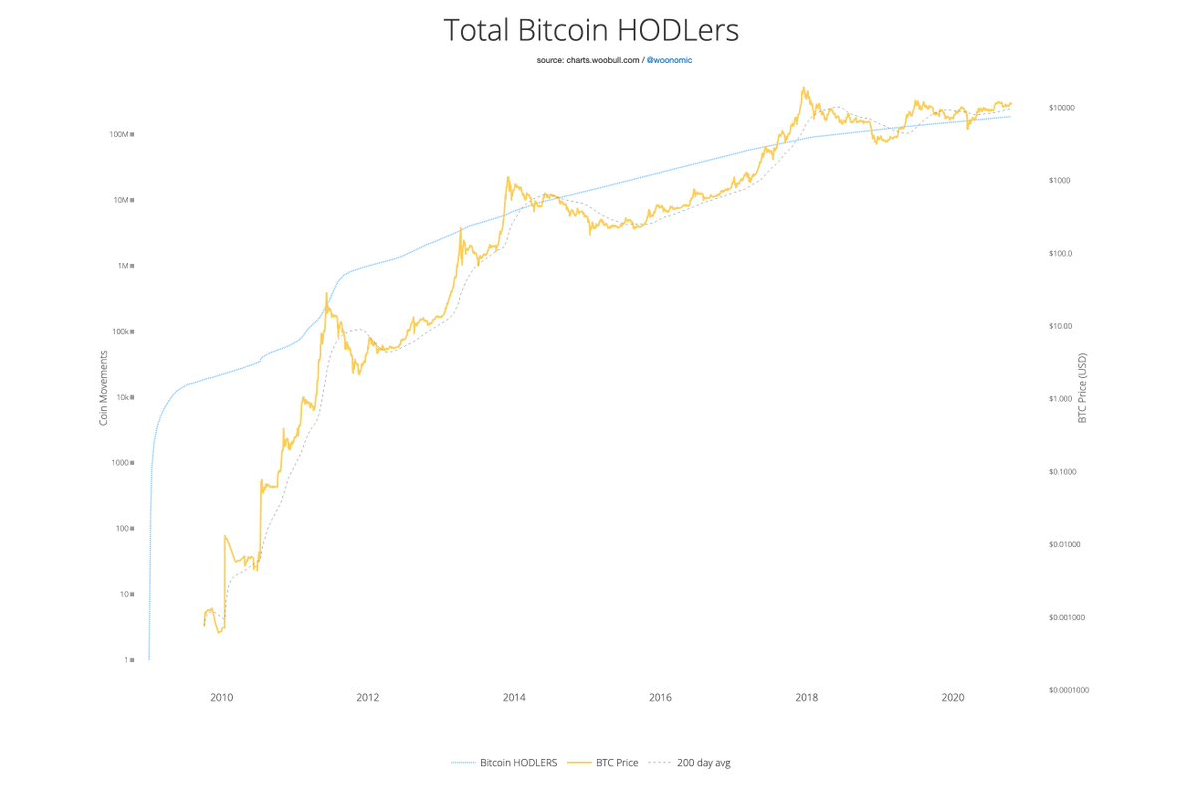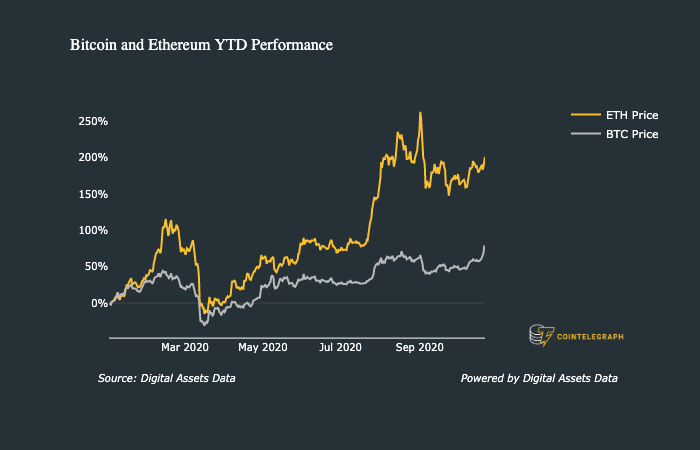Bitcoin (BTC) price has again punched through the $13,000 mark after yesterday’s PayPal’s announcement sparked a powerful rally which drove the price to a new 2020 high.
Currently sitting near $13,100, Bitcoin price has rallied nearly 10% since the announcement and BTC is now close to overtaking PayPal as the 21st biggest asset by market capitalization.
PayPal’s crypto announcement comes two weeks after Square, another payments giant, announced its own foray into Bitcoin by investing roughly 1% of its assets into Bitcoin.
According to Lanre Jonathan Ige, a researcher at Amun AG, the continuing trend of large sized investments will be material in bringing institutional interest to Bitcoin. Ige said:
“Corporations are often trend-following and we can expect a number of other corporations to follow the lead of Square and Microstrategy, as the returns of the assets continue to impress.”
However, the recent news from PayPal is more likely to bring the masses to Bitcoin, rather than Bitcoin to institutions. This is because PayPal may bring a more mainstream audience up to speed with the cryptocurrency as an investment vehicle for now and as a payment method in the future, which has been one of the main focus of the Bitcoin community when it comes to mass adoption.
PayPal should boost Bitcoin’s user base
According to data from glassnode, Bitcoin currently has over 187 million users or “hodlers”. While impressive, crypto analyst Willy Woo noted that this pales in comparison to PayPal’s 487 million users.
 Total Bitcoin HODLers. Source: Twitter
Total Bitcoin HODLers. Source: Twitter
By adding Bitcoin, PayPal is bringing the name to a mainstream audience. While it is only possible to buy, sell and hold Bitcoin through PayPal for the time being, the company announced that it would be adding cryptocurrency payment and transfers in 2021. Once this occurs, it could cement Bitcoin’s reputation as a payment and remittance mechanism.
Transacting through PayPal and other centralized platforms could even become one of the ways in which Bitcoin is able to scale to a mainstream user base. Centralized transactions (along with other methods like sidechains and lightning network) could be used to alleviate congestion in Bitcoin’s blockchain, allowing it to be used only for bigger transactions that require more safety, transparency or immutable proof of ownership.
Bitcoin is on the path to outperforming banks
While it seems that payment processing companies and cryptocurrencies are finding more synergy as time passes, the same can not be said for banks and this struggle is reflected in their stock price.
Jon Erlichman, tech correspondent at BNN Bloomberg, noted that assets like Bitcoin, Ether and stocks for payment companies like PayPal and Square were doing quite well this year but since the COVID-19 pandemic, financial stocks have underperformed.
 Bitcoin and Ether YTD performance. Source: Digital Assets Data
Bitcoin and Ether YTD performance. Source: Digital Assets Data
To date, the prices of Bitcoin and Ether have appreciated by 80.5% and 217%. Meanwhile, PayPal rallied 99% and Square 186%. Banks like JPMorgan and Bank of America, on the other hand, have lost 28% and 32% respectively. Citigroup has seen its stock value drop by 46% and Wells Fargo has decreased by 58%.
As for Bitcoin, it continues to be one of the best performing assets in existence, beating gold and the S&P 500 by a wide margin in 2020.
 Macro Assets Current Year Returns. Source: Skew.com
Macro Assets Current Year Returns. Source: Skew.com
As a growing number of people interact with Bitcoin as an investment vehicle, it is possible that consumers will turn their backs to banks and invest in cryptocurrency.
According to experts, Bitcoin may even benefit from what some call the ‘Robinhood effect’, a phenomenon where retail investors with disposable income purchase an asset via fee-free, gamified investing platforms in order to avoid the rigamarole frequently associated with banks.
If this happens to BTC, the digital asset could see the same type of hyperbolic investing frenzy that occurred as Robinhood investors poured funds into Tesla earlier this year.
Source
